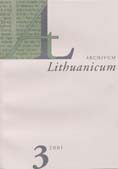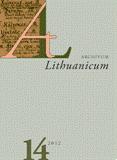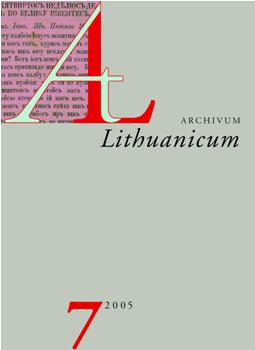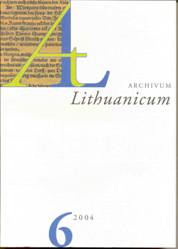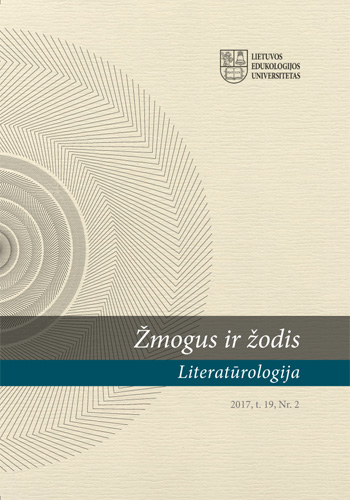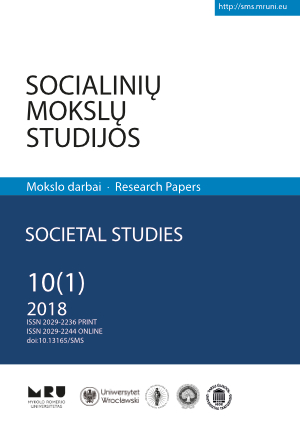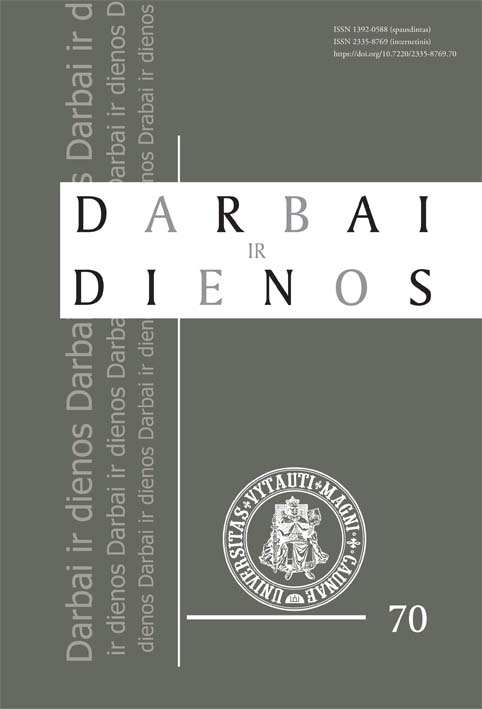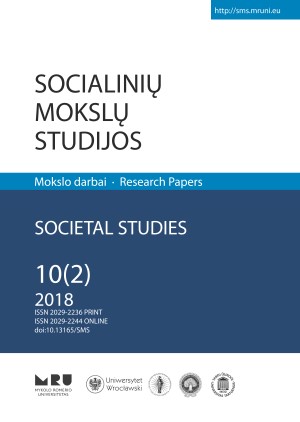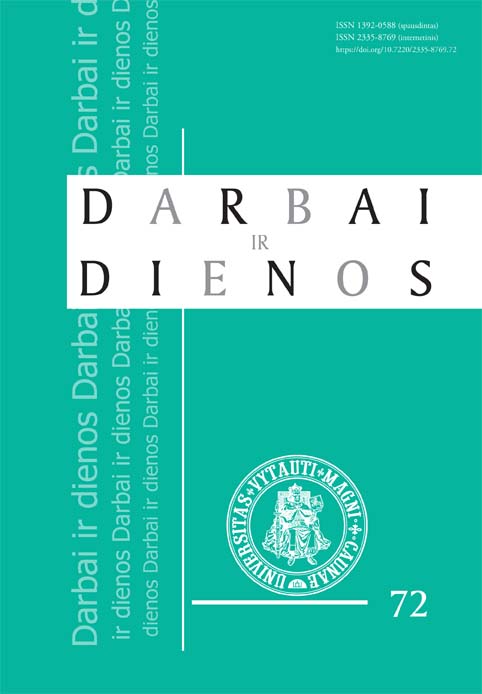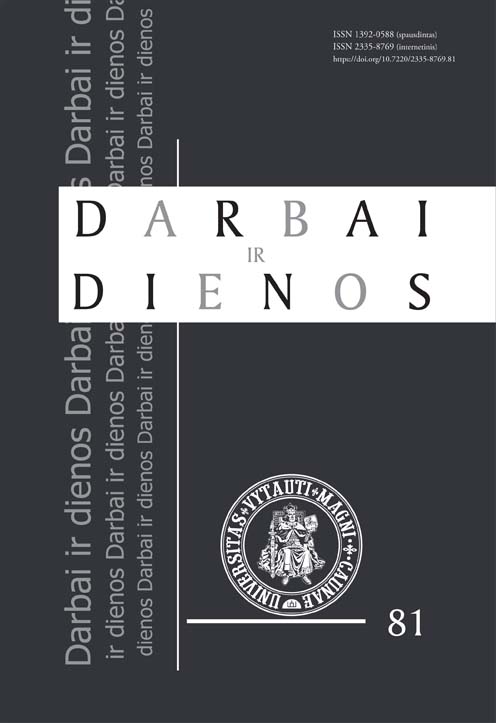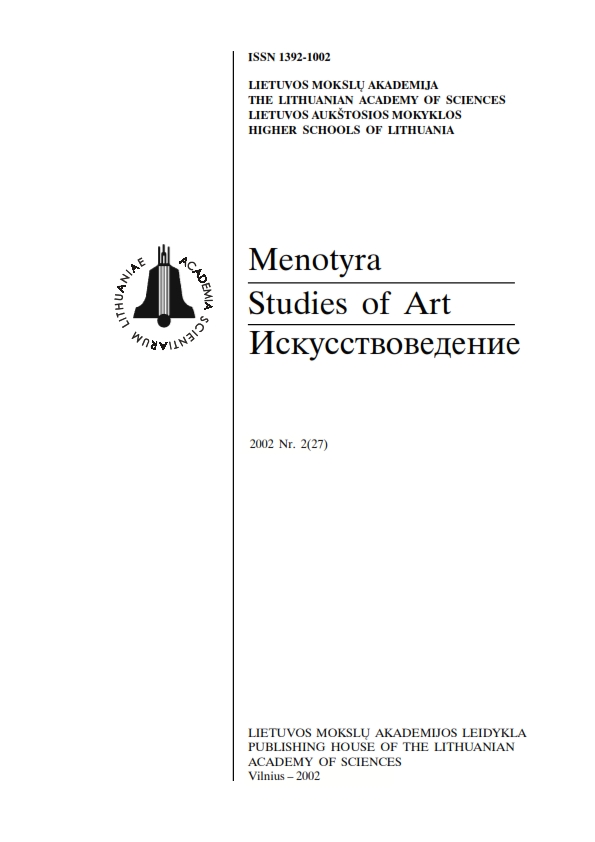
Modernistinės istorijos traktuotės XX a. lietuvių literatūroje
Nearly up to the end of the 20th century, Lithuanian literature was focused mainly on historical themes and myths inherited from romanticism. The author argues that alternative versions of the treatment of history became apparent in the modernistic literature of the period and distinguishes two trends: ironic demystification and vitalist-mythological viewpoint. The first approach is characteristic of the representatives of high-modernism and existentialism of the mid-20th century and later period (Antanas Škėma, Juozas Aputis, Bronius Radzevičius, and Vytautas P. Bložė). The traditional historic themes in the works of these authors are employed as parables to convey the catastrophic individual's state and used as Aesopian formulas to address the themes prohibited by the Soviet censure (Holocaust, totalitarism, etc.). The other trend took its roots in the avant-garde literature of the 1930s (Petras Tarulis, Juozas Žlabys-Žengė); the tradition was later continued in the poetry and prose of the mid- (Kazys Bradūnas) and late 20th century (Sigitas Geda, Romualdas Granauskas). Mythological experience of the pre-historic times and nature here makes opposition to the destructiveness of the modern historic experience and deterministic Soviet ideology. Already in the late 1970s, Saulius Tomas Kondrotas started the postmodernistic "game" by experimenting with various historic versions, falsificates, literary allusions, although the modernistic demystifying-catastrophistic treatment of history still survived in the literature of the 20th-century last decade (Ričardas Gavelis, Vanda Juknaitė, Sigitas Geda).
More...
